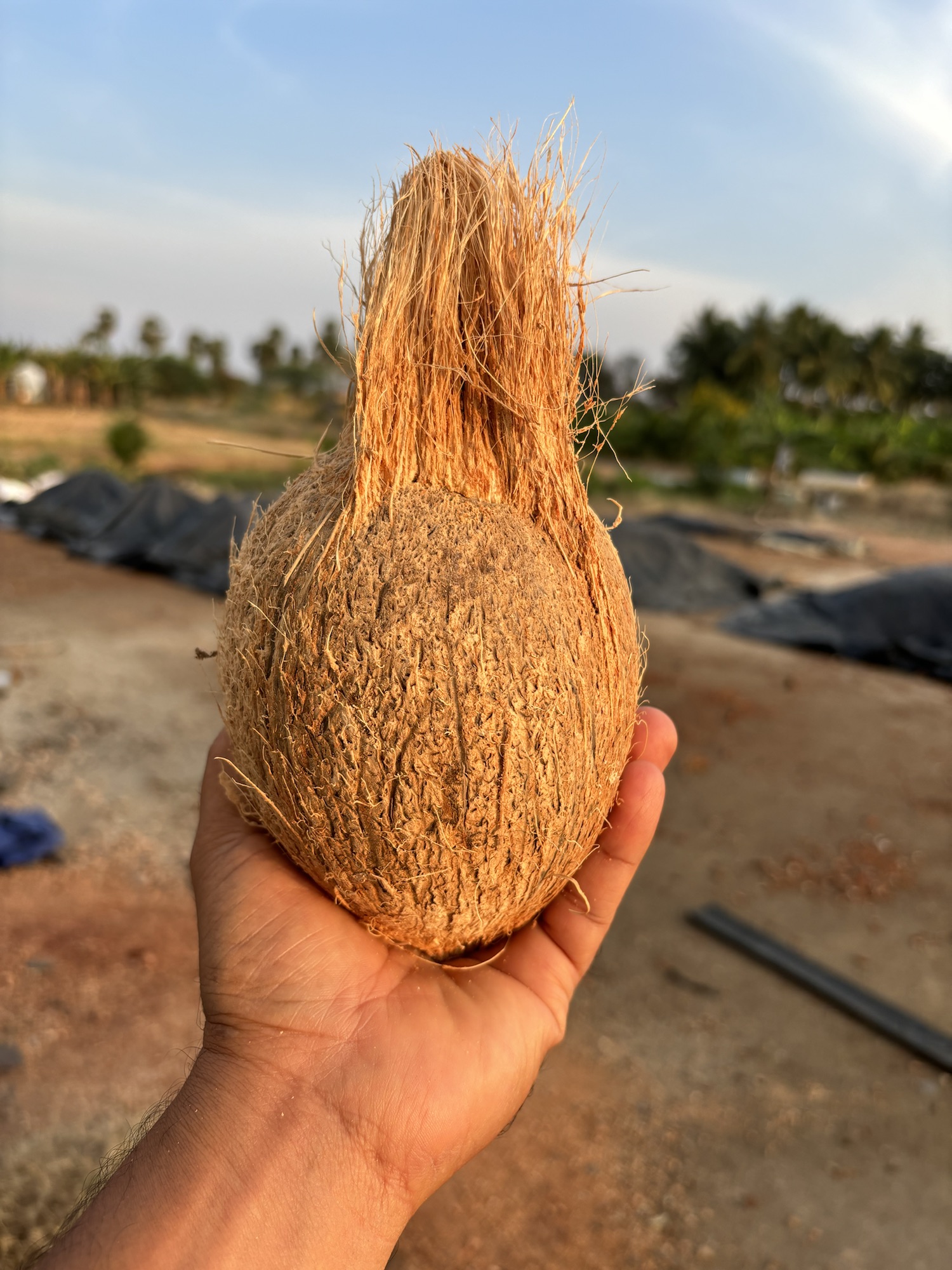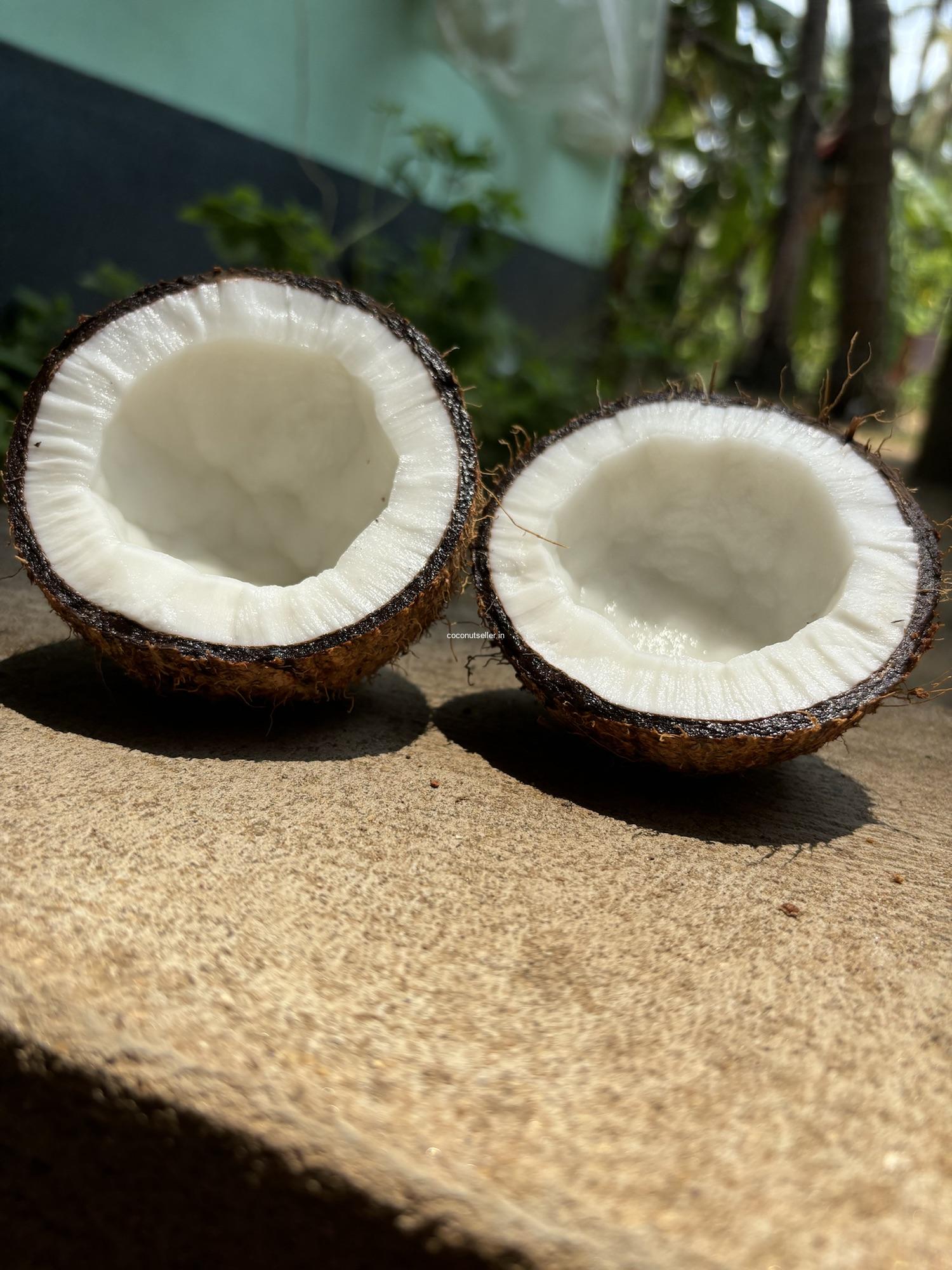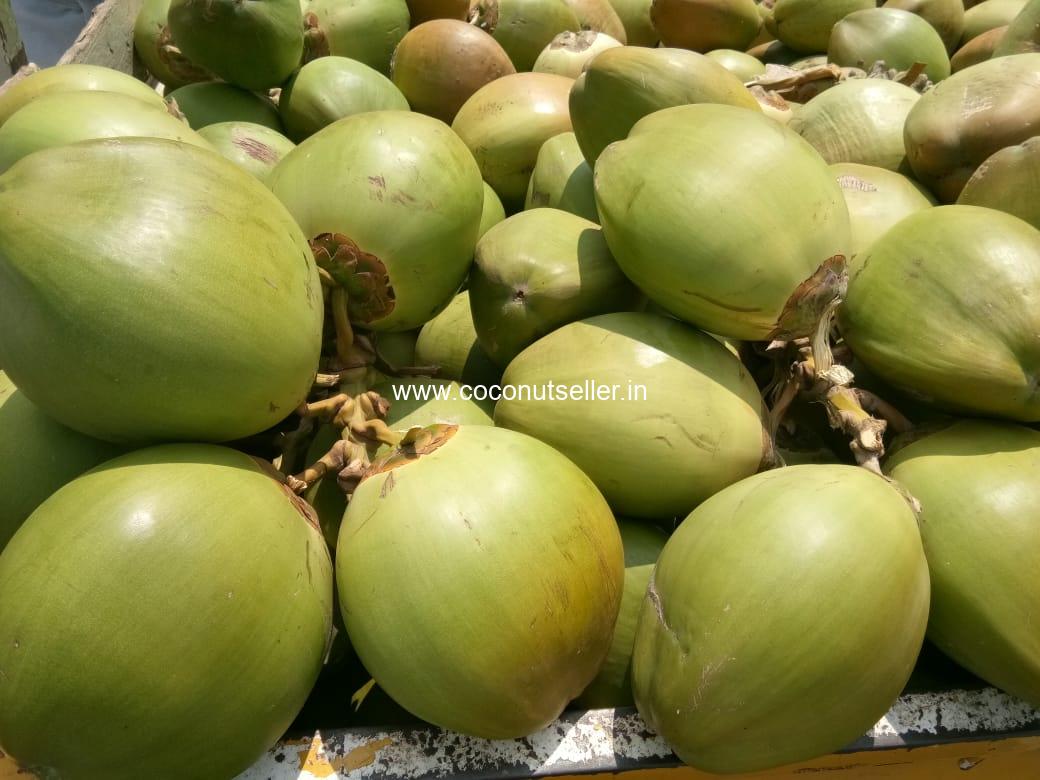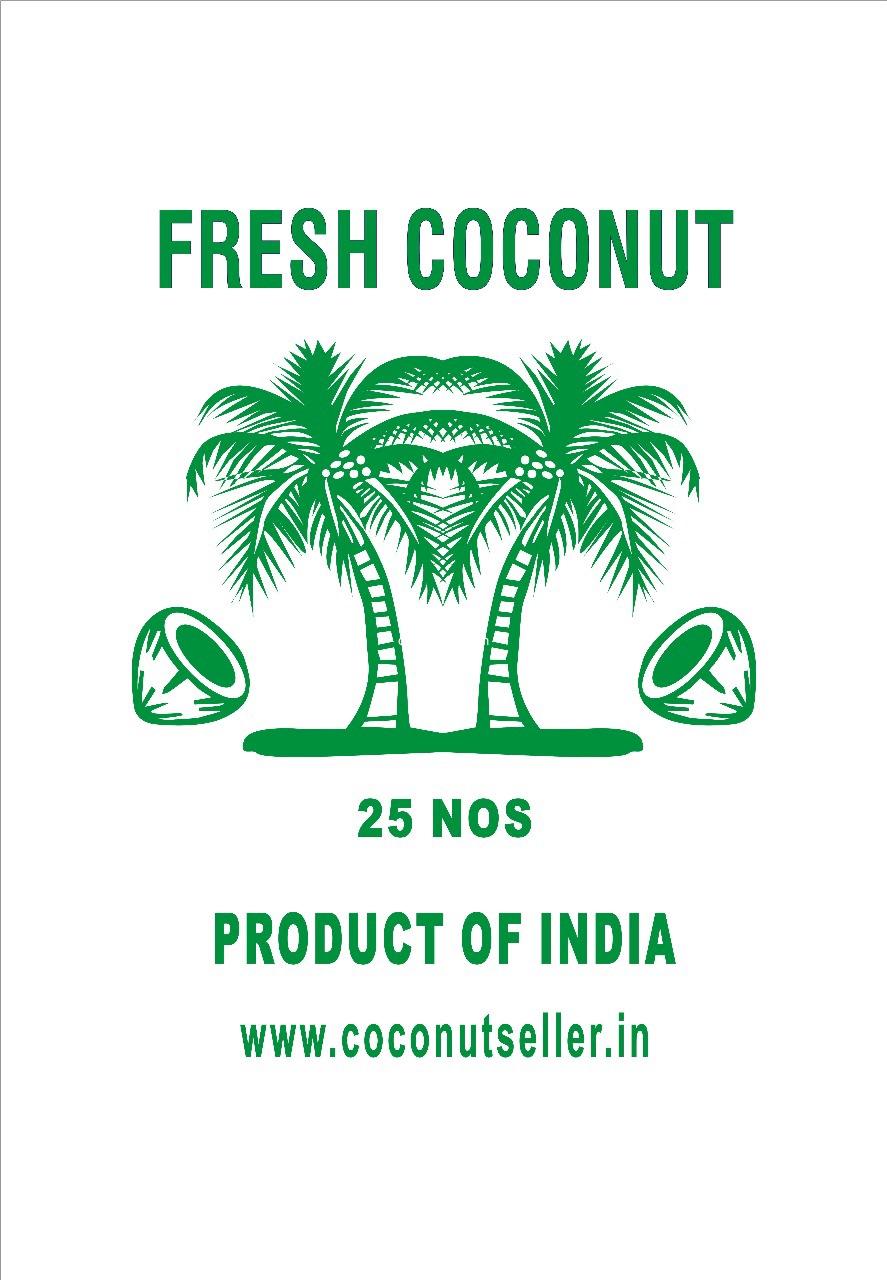
Fresh semi-husked coconuts are coconuts that have had most of their outer green husk removed, leaving a portion of the husk intact to protect the nut inside. Here are some details about fresh semi-husked coconuts:
Characteristics
- Outer Appearance: Semi-husked coconuts retain a portion of their fibrous husk, typically exposing the hard brown shell of the nut while still having some of the protective husk around it.
- Coconut Water: These coconuts still contain the refreshing, clear coconut water inside, which is sweet and hydrating.
- Coconut Meat: The inner flesh of semi-husked coconuts is usually firmer than that of young green coconuts but not as hard as the fully mature dried coconuts. The meat is white and can be consumed directly or used in cooking.
Nutritional Benefits
- Hydration: The water inside semi-husked coconuts is rich in electrolytes such as potassium, sodium, and magnesium, making it an excellent natural hydration source.
- Vitamins and Minerals: The meat and water of semi-husked coconuts provide essential nutrients, including vitamin C, iron, copper, and manganese.
- Healthy Fats: The flesh contains healthy fats, particularly medium-chain triglycerides (MCTs), which are known for their quick metabolism and energy-providing properties.
Culinary Uses
- Beverages: Coconut water from semi-husked coconuts is consumed as a refreshing drink or used in smoothies and cocktails.
- Cooking and Baking: The meat can be grated, shredded, or sliced and used in a variety of recipes, including curries, salads, desserts, and baked goods.
- Coconut Milk and Cream: The flesh can be processed to produce coconut milk and cream, which are popular in many culinary traditions, especially in Southeast Asian and Indian cuisines.
Storage and Handling
- Freshness: Semi-husked coconuts should be consumed relatively soon after harvesting for the best flavor and nutritional benefits.
- Storage: Store in a cool, dry place. Refrigeration can help extend their freshness, especially once they are opened.
Health and Wellness
- Electrolyte Balance: Coconut water helps maintain electrolyte balance in the body, which is beneficial for hydration and recovery after exercise.
- Digestive Health: The dietary fiber in coconut meat supports healthy digestion and can help prevent constipation.
- Antioxidant Properties: Both the meat and water contain antioxidants that help combat oxidative stress and support overall health.
Market Availability
- Export and Import: Semi-husked coconuts are popular in international markets because the partial husking reduces weight and volume, making them easier to transport while still providing protection to the nut.
- Consumer Preference: Many consumers prefer semi-husked coconuts due to their convenience and the ease of accessing the coconut water and meat.
Fresh semi-husked coconuts offer a balance of convenience and natural protection, making them a popular choice for consumers looking to enjoy the nutritional and culinary benefits of coconuts..
For more details about export and price call or whats app +91 9037250400











